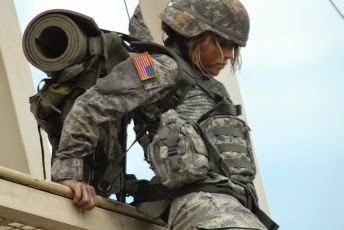May such real life thingies be suspectly segued into the real of the diplopolititary au courant?
Oh! You know it is so bay bee!
When Great Satan"s coolest uncle ever totally laid it out to play it out regarding foreign peace mongering (sometimes with a fully crunk military contingent) Uncle Tony gave R2P a real vision:
- Are we sure of our case?
- Have we exhausted all diplomatic options?
- Are there military operations we can sensibly and prudently undertake?
- Are we prepared for the long term?
- Do we have nat"l interests involved?
Where the answer to all five questions is “yes” then there is a strong case for intervention.
The "War is the poppa of ebberdobby" cat gets down gets down with a more sharper razor edged upgrade with a historical hello:
1. The target cannot have new clear weaponry. Cats in Pakistan and NoKo by virtue of their nukes are exempt from American reaction (unlike Syria or, at present, Iran) — unless they directly threaten our existence or that of our allies. With the end of the Cold War, many rogue states lost the Soviet nuclear umbrella and are still scrambling to acquire their own nuclear weapons to ensure them deterrence, especially against Great Satan, which has not yet invaded a nuclear nation.
2. We do not attack large countries. About 30 million or so — roughly the population of Iraq or Afghanistan — is the upper limit. That criterion suggests that we will not ourselves seek regime change in Iran (population: 65 million) through force — a different case from punitive bombing or preemptive air attacks on its nuclear facilities.
3. The target should not directly border either Russia or China. We violated this commandment in Afghanistan, apparently encouraged by the global climate of goodwill toward America after 9/11, the short and mountainous Chinese border, and the fact that China shares our fear of radical Islam. But otherwise, after Vietnam and the Cold War, the former Soviet republics, North Korea, Tibet, and the countries of Southeast Asia will always be off-limits to intervention.
4. U.N. sanction and congressional approval, however praised and sometimes sought, seem irrelevant. We obtained neither before bombing Serbia, the former but not the latter in Libya, and the latter but not the former in Iraq. We obtained both for Gulf War I, but neither for Panama or for Grenada.
5. Africa seems exempt. Tens of thousands perished in Congo, Darfur, and Rwanda. Africa has oil. No matter. Somalia is as much Middle Eastern as African, and our intervention there was a particularly half-hearted affair. In Africa, even genocide is not a reason for military intervention — quite in contrast to Serbia, where NATO finally intervened. Idealism is often as praised as it is subordinated to realist concerns.
6. We often intervene in Central America and the Caribbean — the Dominican Republic, Grenada, Haiti, Panama — but are less likely to do so in South America, where the politics are riskier, the distances greater, and the nations larger and stronger.
7. Intervention is mostly a bipartisan affair. Democrats went into Haiti, Libya, Serbia, and Somalia, Republicans into Afghanistan, Grenada, Panama, Iraq, and Libya. Republicans may have intervened a little more since Vietnam, but then there have been more years of Republican administrations. Anti-war protests are usually aimed at Republicans, rarely at Democrats, who enjoy far more latitude in the use of force.
8. There is no consistent or predictable rationale for invading a country; it can be supposed national interest and/or oil (Iraq, Libya), “humanitarian” considerations (Haiti, Serbia, Somalia), spheres of interest (Grenada, Panama), or simple retaliation (Afghanistan).
9. The insertion of ground troops is necessary to create postwar governments (Afghanistan, Iraq, Serbia, etc.); without them we have little influence (Libya).
10. The target is usually a government rather than gangs, tribes, or terrorists; if it is one of the latter, either we do not go in to remove those in control, whatever the provocation (Lebanon), or we fail when we do (Haiti, Somalia). The verdict on Afghanistan is still out.
11. We are adept at removing dictators (Afghanistan, Grenada, Iraq, Libya, Panama, Serbia), but less so at fostering calm in their wake (Afghanistan, Iraq, Libya).
12. The American people usually favor intervention at the outset, but regret it when hundreds of Americans are killed, violence continues and our losses mount.
13. Russia and China almost always oppose our intervention. nations that support our intervention usually do so privately — and publicly only to the degree post facto that it is clear that we succeeded quickly and without much turmoil.
14. The U.N. has far more problems with removing genocidal dictators than with allowing them to perpetuate genocide.
15. No intervention provides much of a model for any other.
Pic - "Never fall again for the doctrine of isolationism. The world cannot afford it."















0 comments:
Post a Comment